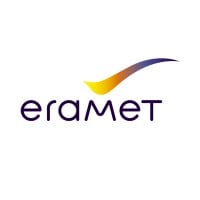
China Shenhua Energy Co., Ltd.
China Shenhua Energy is a mining & metals company based out of BEIJING, BEJ, China.



China Shenhua Energy is a mining & metals company based out of BEIJING, BEJ, China.

Committed to sustainable metals. Eramet transforme les ressources minérales de la Terre pour apporter des solutions durables et responsables à la croissance de l’industrie et aux défis de la transition énergétique Ses collaborateurs s’y engagent par leur démarche citoyenne et contributive dans l’ensemble des pays où le groupe minier et métallurgique est présent : France, Argentine, Gabon, Sénégal, Nouvelle-Calédonie, Indonésie, Norvège, USA. Manganèse, nickel, sables minéralisés, lithium et cobalt : Eramet valorise et développe les métaux indispensables à la construction d’un monde plus durable. Partenaire privilégié de ses clients industriels, le Groupe contribue à rendre les infrastructures et les constructions robustes et résistantes, les moyens de mobilité plus performants, les outils de santé plus sûrs, les appareils de télécommunications plus efficaces. Pleinement engagé dans l’ère des métaux, Eramet ambitionne de devenir une référence de la transformation responsable des ressources minérales de la Terre, pour le bien vivre ensemble.
Security & Compliance Standards Overview












No incidents recorded for China Shenhua Energy Co., Ltd. in 2025.
No incidents recorded for Eramet in 2025.
China Shenhua Energy Co., Ltd. cyber incidents detection timeline including parent company and subsidiaries
Eramet cyber incidents detection timeline including parent company and subsidiaries
Last 3 Security & Risk Events by Company
Angular is a development platform for building mobile and desktop web applications using TypeScript/JavaScript and other languages. Prior to versions 19.2.16, 20.3.14, and 21.0.1, there is a XSRF token leakage via protocol-relative URLs in angular HTTP clients. The vulnerability is a Credential Leak by App Logic that leads to the unauthorized disclosure of the Cross-Site Request Forgery (XSRF) token to an attacker-controlled domain. Angular's HttpClient has a built-in XSRF protection mechanism that works by checking if a request URL starts with a protocol (http:// or https://) to determine if it is cross-origin. If the URL starts with protocol-relative URL (//), it is incorrectly treated as a same-origin request, and the XSRF token is automatically added to the X-XSRF-TOKEN header. This issue has been patched in versions 19.2.16, 20.3.14, and 21.0.1. A workaround for this issue involves avoiding using protocol-relative URLs (URLs starting with //) in HttpClient requests. All backend communication URLs should be hardcoded as relative paths (starting with a single /) or fully qualified, trusted absolute URLs.
Forge (also called `node-forge`) is a native implementation of Transport Layer Security in JavaScript. An Uncontrolled Recursion vulnerability in node-forge versions 1.3.1 and below enables remote, unauthenticated attackers to craft deep ASN.1 structures that trigger unbounded recursive parsing. This leads to a Denial-of-Service (DoS) via stack exhaustion when parsing untrusted DER inputs. This issue has been patched in version 1.3.2.
Forge (also called `node-forge`) is a native implementation of Transport Layer Security in JavaScript. An Integer Overflow vulnerability in node-forge versions 1.3.1 and below enables remote, unauthenticated attackers to craft ASN.1 structures containing OIDs with oversized arcs. These arcs may be decoded as smaller, trusted OIDs due to 32-bit bitwise truncation, enabling the bypass of downstream OID-based security decisions. This issue has been patched in version 1.3.2.
Suricata is a network IDS, IPS and NSM engine developed by the OISF (Open Information Security Foundation) and the Suricata community. Prior to versions 7.0.13 and 8.0.2, working with large buffers in Lua scripts can lead to a stack overflow. Users of Lua rules and output scripts may be affected when working with large buffers. This includes a rule passing a large buffer to a Lua script. This issue has been patched in versions 7.0.13 and 8.0.2. A workaround for this issue involves disabling Lua rules and output scripts, or making sure limits, such as stream.depth.reassembly and HTTP response body limits (response-body-limit), are set to less than half the stack size.
Suricata is a network IDS, IPS and NSM engine developed by the OISF (Open Information Security Foundation) and the Suricata community. In versions from 8.0.0 to before 8.0.2, a NULL dereference can occur when the entropy keyword is used in conjunction with base64_data. This issue has been patched in version 8.0.2. A workaround involves disabling rules that use entropy in conjunction with base64_data.